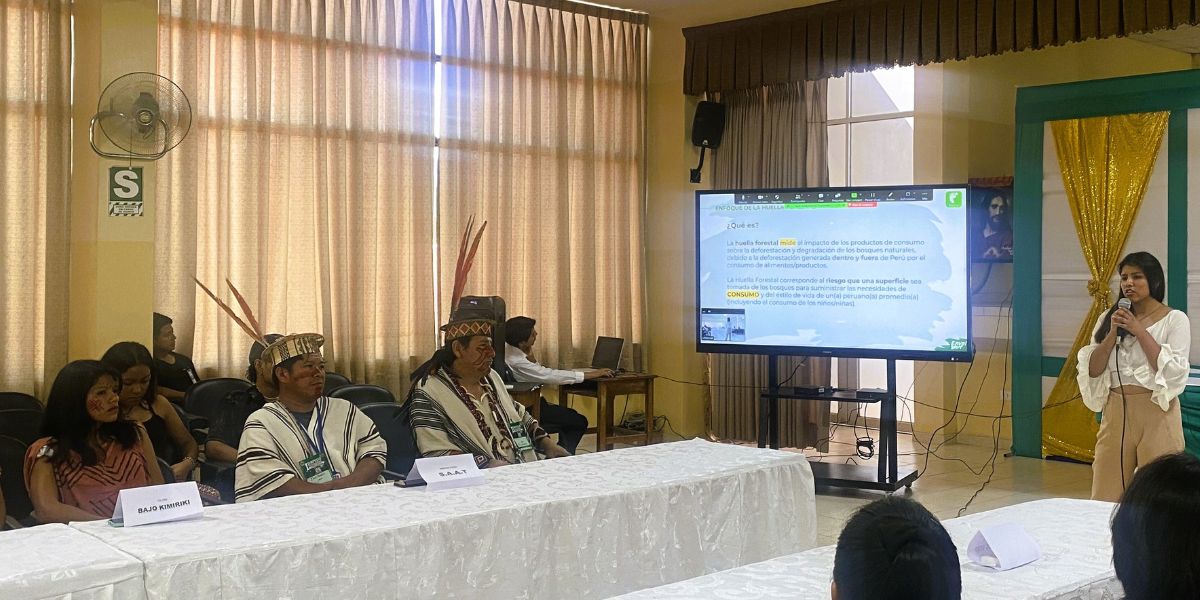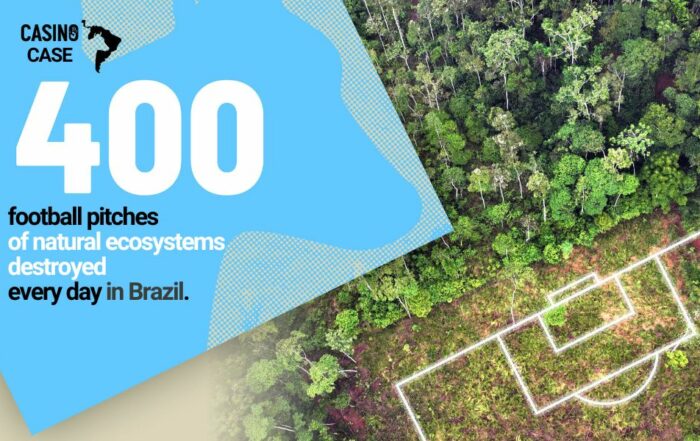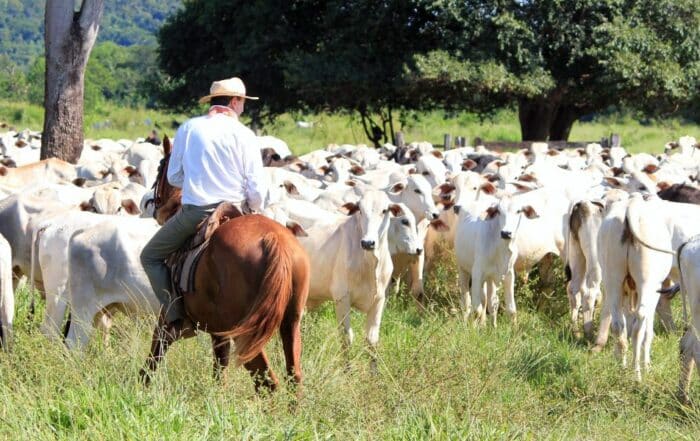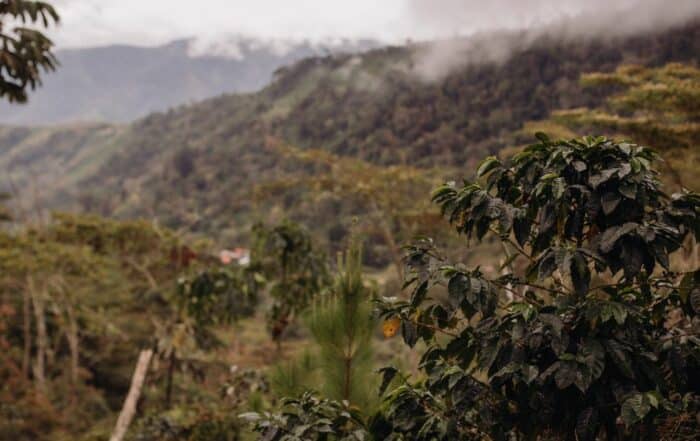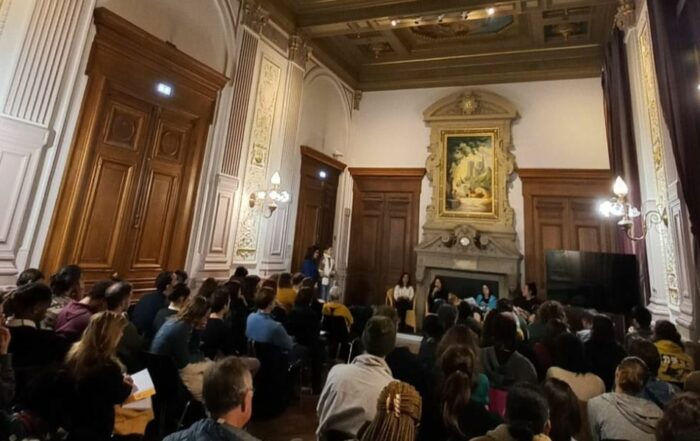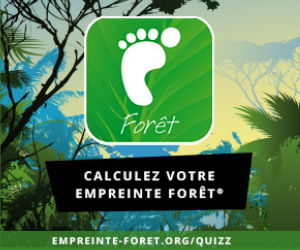Presentation of the Peruvian Forest Footprint during the National Forestry Week
Peru has been celebrating “National Forestry Week” since 1974 to raise awareness among the population of the importance of conserving and sustainably using forest resources.
The Forest Footprint is a tool developed by Envol Vert since 2013, which measures the impact of our consumption on deforestation at a consumer, country, company, community, etc. level.
To sum up, the Forest Footprint is the amount of forest area needed to sustain our lifestyles and consumption.
Envol Vert introduced the Peruvian Forest Footprint during the various National Forestry Week activities in the towns of Tingo María and Pichanaki, to raise awareness of the impact generated by our consumption styles on forest.
The National Forum “Society and forest development, a challenge for the future” took place on November 6, 2023 in the conference room of the Engineering High School of Peru Huánuco-Tingo María Departmental Council, where Envol Vert presented the Peruvian Forest Footprint.
Continuing with the activities programmed for the National Forestry Week in Tingo María, the “Forestry and Wildlife Fair” was held on November 9 and 10 in the Main Square of Tingo María. In this event, the Envol Vert team raised awareness among 110 people (including 15 children) in a didactic way by presenting the national forest footprint through games such as “Super Forest” and “Paint your forest” in which adults and children learned about the conservation of forests and the impact of their consumption on them. Of this total, 45% were women and 55% were men.
In the city of Pichanaki, the Envol Vert team participated in two activities as part of the National Forestry Week.
A total of 46 people were successively sensitized, of which 40% were women and 60% were men.
It is essential to create laws and tools that allow us to know the traceability of the products we consume and the impact they have on our forests. This new Forest Footprint methodology allows us to contribute to reducing deforestation in our country every year by promoting the consumption of sustainable products that generate less impact on forests.
We participated from 9am to 5 pm in the Forestry Week Fair in order to show which consumer products generate a high rate of deforestation. The number of participants was 4 men and 2 women for a total of 6 people.
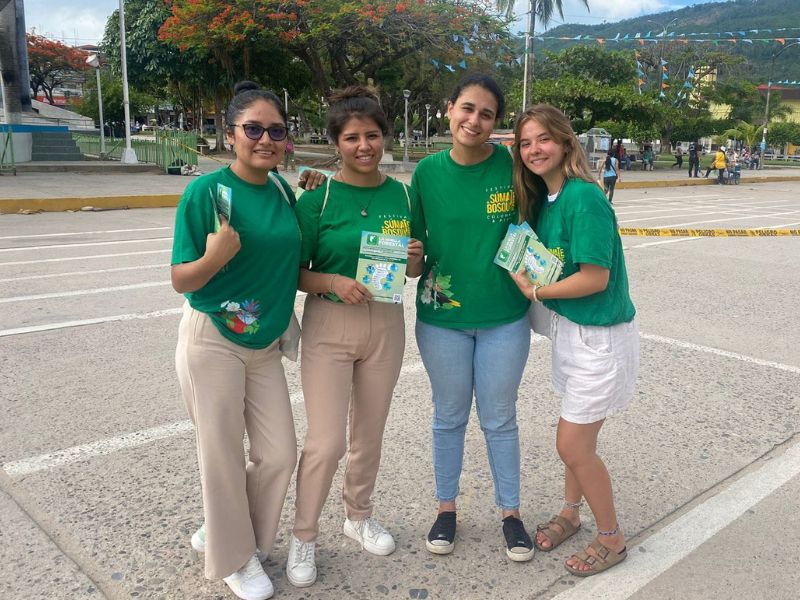
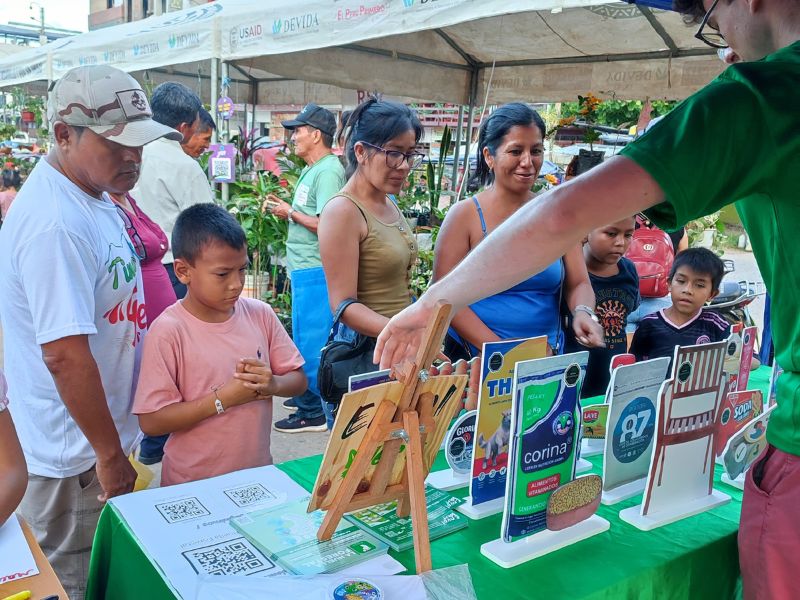
In Lima, Envol Vert participated in the “Agroforestry as an alternative to migratory agriculture” roundtable, which took place on November 15 at the university campus of the Agrarian University La Molina in Lima. Berenice Mendoza, Referent of Conservation and Political Incidence, shared experiences in the areas of work in Pichanaki and Tingo Maria, this was very important to show that agroforestry is currently relevant for the implementation of good practices in agriculture and with producers especially to meet challenges such as the new EU regulations to combat deforestation. Around 50 people assisted, where 70% were young people. These spaces are undoubtedly important to promote the approach of the academy to the reality and the fight against deforestation from our organization allowing awareness and involvement of future professionals in the environmental sector of Peru.
Presentation of the Peruvian Forest Footprint during the National Forestry Week
Peru has been celebrating “National Forestry Week” since 1974 to raise awareness among the population of the importance of conserving and sustainably using forest resources.
The Forest Footprint is a tool developed by Envol Vert since 2013, which measures the impact of our consumption on deforestation at a consumer, country, company, community, etc. level.
To sum up, the Forest Footprint is the amount of forest area needed to sustain our lifestyles and consumption.
Envol Vert introduced the Peruvian Forest Footprint during the various National Forestry Week activities in the towns of Tingo María and Pichanaki, to raise awareness of the impact generated by our consumption styles on forest.
The National Forum “Society and forest development, a challenge for the future” took place on November 6, 2023 in the conference room of the Engineering High School of Peru Huánuco-Tingo María Departmental Council, where Envol Vert presented the Peruvian Forest Footprint.
Continuing with the activities programmed for the National Forestry Week in Tingo María, the “Forestry and Wildlife Fair” was held on November 9 and 10 in the Main Square of Tingo María. In this event, the Envol Vert team raised awareness among 110 people (including 15 children) in a didactic way by presenting the national forest footprint through games such as “Super Forest” and “Paint your forest” in which adults and children learned about the conservation of forests and the impact of their consumption on them. Of this total, 45% were women and 55% were men.
In the city of Pichanaki, the Envol Vert team participated in two activities as part of the National Forestry Week.
A total of 46 people were successively sensitized, of which 40% were women and 60% were men.
It is essential to create laws and tools that allow us to know the traceability of the products we consume and the impact they have on our forests. This new Forest Footprint methodology allows us to contribute to reducing deforestation in our country every year by promoting the consumption of sustainable products that generate less impact on forests.
We participated from 9am to 5 pm in the Forestry Week Fair in order to show which consumer products generate a high rate of deforestation. The number of participants was 4 men and 2 women for a total of 6 people.


In Lima, Envol Vert participated in the “Agroforestry as an alternative to migratory agriculture” roundtable, which took place on November 15 at the university campus of the Agrarian University La Molina in Lima. Berenice Mendoza, Referent of Conservation and Political Incidence, shared experiences in the areas of work in Pichanaki and Tingo Maria, this was very important to show that agroforestry is currently relevant for the implementation of good practices in agriculture and with producers especially to meet challenges such as the new EU regulations to combat deforestation. Around 50 people assisted, where 70% were young people. These spaces are undoubtedly important to promote the approach of the academy to the reality and the fight against deforestation from our organization allowing awareness and involvement of future professionals in the environmental sector of Peru.

